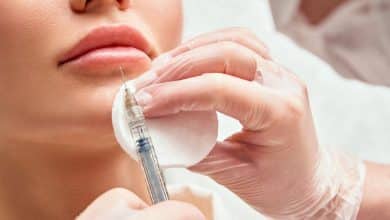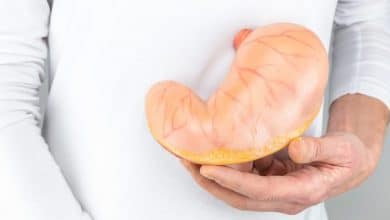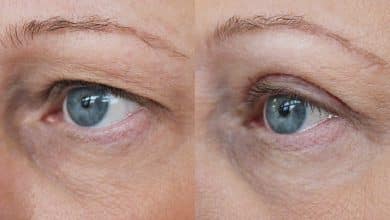Prohibited foods during pregnancy

Harmful foods during pregnancy
When you are pregnant, whatever you eat and share with your baby also helps his growth, so do not forget that some foods, drinks or even fruits may harm you and your baby.
In general, it is important to eat a balanced diet at all times, but they are even more important when you are pregnant, so to keep yourself and your baby safe, avoid eating unhealthy foods during pregnancy to have a healthy diet during this time. Be:
- Raw or undercooked meat:
Because meat products can become contaminated with various bacteria during processing or storage, if they are uncooked or undercooked, they can be considered forbidden foods during pregnancy.
Foods such as beef, lamb and beef, if uncooked or undercooked, increase the risk of infection through several bacteria or parasites, including coliforms and eczema. Pregnant women are highly susceptible to Listeria infection.
These bacteria may threaten your baby’s health. Having them in your body can increase the risk of serious neurological diseases such as mental retardation, blindness and epilepsy, or lead to miscarriage.
Toxoplasmosis, on the other hand, is an infection caused by the parasite Toxoplasma and can be found in raw or undercooked meat. In addition to the above problems, this parasite can damage your baby’s organs.
Consumption of pieces of meat (whole – sliced - minced) can be from the group of harmful foods during pregnancy if they must be washed before consumption and thoroughly cooked inside and out. Chicken and turkey are no exception to this rule and should never be eaten half-cooked.
Liver meat is an excellent source of nutrients, including iron, vitamin B12, vitamin A, zinc, selenium and copper, and can be beneficial.
It is true that liver is not a forbidden food during pregnancy, but excessive consumption of animal vitamin A during this period is not recommended because it can lead to congenital anomalies or miscarriage.
- Mercury fish:
If you think seafood is harmless, you are wrong. Fish that have high levels of mercury are forbidden foods during pregnancy.
Contrary to the balanced consumption of some healthy fish, you should completely avoid eating fish that have high levels of mercury, as they can affect the mother’s nervous system and cause brain damage or hearing and vision problems for the baby.
In addition to these fish, canned light tuna usually has less mercury than other tuna and is not a forbidden food during pregnancy, but should still be consumed in moderation.
Because Listeria bacteria can also be found in contaminated water, seafood such as fish can be contaminated with it, so a variety of bacteria or parasites from raw or smoked fish can have adverse health effects and harm you and your fetus.
- Raw or boiled eggs:
Eggs can be a good supplement to a balanced and healthy diet, but if you are pregnant you should avoid foods containing raw and boiled eggs. Also, do not use cracked eggs.
Sauces such as Caesar salad dressing, mayonnaise or any homemade sauce made with raw eggs are harmful foods during pregnancy. Homemade ice cream and homemade icing are other forbidden foods during pregnancy because they are made from raw eggs.
So if you want to eat any food that contains eggs, it is better to make sure that the eggs are fully cooked or use pasteurized eggs as this avoids the risk of food poisoning with Salmonella.
Common symptoms of Salmonella infection include fever, nausea, vomiting, constipation, and diarrhea. However, in rare cases, the infection may lead to premature birth or stillbirth.
- Unpasteurized dairy products:
Unpasteurized dairy products are considered harmful foods during pregnancy. Avoid consuming them during this time as they may contain Listeria bacteria that cause listeriosis unless they are clearly stated in the description that they are made from pasteurized milk.
It should be noted that this disease has symptoms such as flu, nausea, diarrhea and causes premature birth, stillbirth and miscarriage in pregnant women.
Many dairy products such as cream, yogurt, milk and cheese are pasteurized in shops, supermarkets and restaurants. Otherwise, make sure that the dairy products you consume are pasteurized. If the word pasteurized is not written on the product label, you must replace the pasteurized product.
- Unwashed fruits and vegetables:
Fruits and vegetables are generally not prohibited during pregnancy and are safe. It can even be said that they form an essential part of a balanced diet during this period. However, to remove all traces of dirt and grime and to prevent possible exposure to toxoplasmosis, it is essential to ensure that they are washed away as toxoplasmosis may contaminate the soil where vegetables grow.
Raw sprouts such as alfalfa, clover, radish and mung bean sprouts may be infected with Salmonella, which is a forbidden food during pregnancy and is not recommended. Therefore, salads that are made of substandard ingredients can be included in the category of harmful foods during pregnancy.
What not to eat in the first trimester of pregnancy?
Pregnancy is a journey that brings with it many changes, from morning sickness to rapid changes in body structure. One of the main changes is diet. This means that you need to know exactly what is safe and healthy to eat and what is not.
It can even be said that paying attention to a healthy diet in the first trimester of pregnancy is more important than the following months of this period. Here are some things to avoid in the first trimester of pregnancy.
During the first trimester of pregnancy, your body undergoes many changes as your baby slowly begins to grow in your womb.
The first trimester is a vital time for your baby to grow, so some foods can be harmful to you and affect your baby’s health and growth. Therefore, you should avoid eating harmful foods during pregnancy, especially in the first trimester:
- Smoked or refrigerated seafood
- Fish with high levels of mercury
- Raw or undercooked meat
- Raw cake batter or pastry
- Boiled egg
- Homemade sauce containing raw eggs
- Unpasteurized dairy products such as milk and cheeses
- Raw sprouts such as mung bean and clover
- Unwashed vegetables or fruits
- Caffeinated beverages – alcohol
- Excess Vitamin A.
- Other foods you are allergic to
This list of do’s and don’ts in the first trimester of pregnancy may seem a little scary at first glance, but you should not let it scare you! These are just for the care of you and your baby.
Prohibited fruits during pregnancy
Your body uses the nutrients and energy provided by the foods and fruits you eat both to grow a healthy baby and to keep your body strong. Avoid forbidden fruits and foods during pregnancy.
- Do not eat melons during pregnancy.
- Pineapple is also not recommended for pregnant women, especially if they are in the first trimester of pregnancy. Because they contain special enzymes that change the tissue of the cervix, which can cause premature contractions and miscarriage.
- Although eating bananas during pregnancy is considered safe, in certain cases it should be avoided. For example, this fruit is not recommended for women who suffer from allergies or gestational diabetes.
- Watermelon is generally good for the human body, but eating watermelon during pregnancy may expose the baby to various toxins. One of the side effects can be an increase in your blood glucose level due to its sugar content.
- Pregnant women should avoid frozen berries or anything that has been frozen for a long time. For this reason, it is better to choose fresh berries instead of frozen or canned ones.
- It is not recommended because grapes produce heat in the body, especially in the first and last trimester of pregnancy.
- Dates are rich in essential vitamins and nutrients, but are often not recommended for pregnant women.
Harmful drinks during pregnancy
- Caffeinated beverages:
Drinks such as coffee, tea, energy drinks, chocolate and soft drinks may be your favorite, but because they contain caffeine, they are among the forbidden foods during pregnancy.
As these drinks can lead to dehydration and calcium loss, it is best to replace them with plenty of water, fruit juices and milk.
If you have a strong interest in these harmful drinks during pregnancy, useful herbal teas and decaffeinated coffees in very small quantities can also be options, but the safest thing to do is to avoid caffeine as much as possible. Avoid this period because high levels are associated with pregnancy complications.
Alcohol consumption during pregnancy should be completely avoided as it has been proven to be a harmful beverage during pregnancy. There is no safe amount of this drink that is definitely harmful during pregnancy to be safe.
This forbidden drink flows into your bloodstream and is passed to your baby through the umbilical cord or breastfeeding. Alcohol consumption has harmful effects and risks on the growth and development of the fetus, which results in mental, physical disabilities and even abortion.
- Non-pasteurized fruit juices:
Pregnant women should consume pasteurized juice because unpasteurized juices can endanger the health of mother and baby.
Some markets sell unpasteurized fruit juices in their refrigerators, which are considered to be harmful drinks during pregnancy and should be avoided.
On the other hand, boxed and bottled juices on supermarket shelves are not considered harmful drinks during pregnancy and are safe for pregnant women.
last word
When you find out you are pregnant, you may have more questions about a healthy pregnancy every day. Whatever your question, a good weekly understanding of pregnancy can help you make good decisions during this time.
Learn the do’s and don’ts of eating with harmful drinks during pregnancy to get acquainted with the basics of healthy pregnancy issues. The more you learn about your pregnancy week by week, the better prepared you will be to face what lies ahead.










